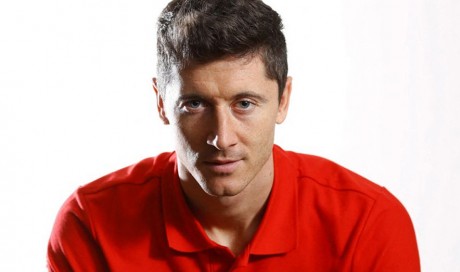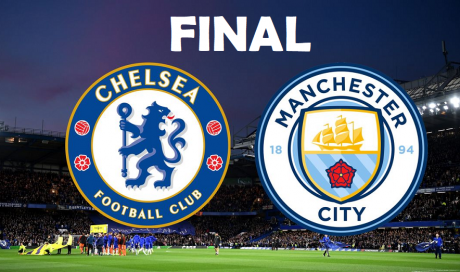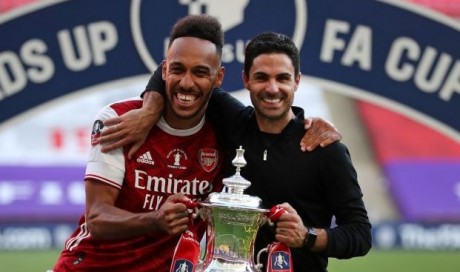Arkansas coach Bret Bielema, who is “always on the field complaining,” said one official. He received an unsportsmanlike conduct penalty for complaining on the field against Alabama.
Saban, who ran more than 10 yards onto the field to dispute a roughing the passer penalty in the same Arkansas game. Bielema got penalized; Saban didn’t.
West Virginia coach Dana Holgorsen, who is “constantly out of control,” said one official. “It feels like every week with him.”
Mississippi State coach Dan Mullen, who got flagged for unsportsmanlike conduct after slamming his headset down on the field while arguing officials missed a block-in-the-back penalty on a touchdown.
UCLA coach Jim Mora Jr., who drew an unsportsmanlike conduct penalty against Arizona after screaming at officials over a call the Pac-12 and NCAA later said was correct. Mora was reprimanded by the Pac-12 for publicly criticizing the officiating.

“There are some high-profile situations where the coach behavior is not what we’d like, and I think the officials are calling [unsportsmanlike conduct] when they feel like it’s really out of line,” Redding said. “It doesn’t happen a lot. When it does, it gets a lot of notice. That’s part of the challenge for the officials: When are we going to call this, when are we not?”
American Football Coaches Association executive director Todd Berry said he’s “very proud” of the way coaches act, adding that it’s “a very, very small minority” who behave poorly.
“Does society act as well as our coaches do? You’d probably say no, they don’t,” Berry said. “We can still always be better. But I don’t know that the rule that was put in play [two unsportsmanlike conduct penalties resulting in an ejection] created a different thought process for any of our coaches.”
OK. Then officials need to create a different thought process for that very, very small minority. Why not call unsportsmanlike conduct penalties more frequently and eject a coach when necessary?
“I don’t know if most of the time it gets to that point,” Berry said. “Are there going to be some disagreements at times? Absolutely. Can both sides take it too far? Absolutely. I disagreed with an official one time and he started throwing obscenities at me. I’m like, ‘Hey, now.’ He was having a bad day.”
We are accustomed to basketball coaches getting thrown out after two technical fouls. It’s a tradition for baseball managers/coaches to be ejected. So, why not football?
“It’s the difference in the game,” Pac-12 officiating coordinator David Coleman said. “In basketball, you’ve got the sideline, the coach is right there, he’s not supposed to step on the court, the pace of the game, the calls that are made -- there’s a little bit more happening. Baseball, that’s just part of the fabric of the game with confrontations between umpires and managers and coaches. But in football, there’s excitement, there’s emotion. But all in all, we do pretty well. There’s a need to emphasize [staying off the field], and I think that’s what Rogers’ memo will do.”
Ejections in football carry risks. There are so few games that losing a head coach in football is far more significant than in any other sport. Of course, that theory doesn’t stop ejections of players for unintentional hits to the head with the NCAA’s well-intentioned targeting rule.
There’s a risk officials could go overboard and penalize a coach anytime he’s on the field, even if he’s yelling at his players. Keep it simple. Only throw the flag when a coach directly confronts an official on the field or his sideline behavior over a call is ridiculous. Then throw it again if needed.
Football coaches are so popular and powerful that harsh backlash would likely greet any referee who ejects a coach. Commissioners are going to need to publicly support ejections. Consistency across the country will be needed to justify throwing out a coach.
“You don’t want to let something happen in the SEC that then happens in another league and it’s penalized,” SEC officiating coordinator Steve Shaw said. “I think two unsportsmanlikes are a very solid way to do it. But I think there are times we need to be more consistent administering when it is an unsportsmanlike foul. It’s not a rulebook problem. The rulebook is very clear.”
Yes, it is. Redding’s latest memo clearly states: “Coaches who enter the field of play to question, protest or otherwise demonstrate disagreement with an officiating decision are subject to an immediate 15-yard penalty for unsportsmanlike conduct.” So just enforce it.
Anderson, the Big 12 officiating coordinator, said the behavior of some coaches has deteriorated to the point that ejections could probably be a useful deterrent. He remembers how player celebrations changed after the NCAA rule change in 2011 wiping out touchdowns for excessive celebration.
Now, it’s fair to argue the NCAA went too far by taking some joy out of touchdowns. But once some scores got wiped out, coaches conveyed the message to players to cut out the celebrations. Coaches can adapt, too. Maybe a year of some ejections will send the message.
“We’re going to tell our officials, ‘We don’t want you going out looking to penalize coaches, but if it’s clear and obvious they’ve crossed the line, rather than continue to turn the other cheek, you need to flag them and we’re going to support you for doing that,’” Anderson said. “If we’re all consistent and someone complains you didn’t call it on the other guy, you say, ‘You’re right, but you deserved it. You’re the one who got clocked going 60 [miles per hour] in a 30 zone.”
At a recent officiating coordinator meeting, McAulay, who is also an NFL referee, showed his counterparts how Atlanta Falcons coach Dan Quinn reacted to the NFL’s worst officiating mistake of 2016. Seattle Seahawks cornerback Richard Sherman clearly got away with pass interference on Falcons wide receiver Julio Jones during a crucial play in a game Atlanta lost.
Quinn was livid, understandably so. But he never went onto the field. He made his point very demonstrably on the sideline.
“I submit that some of our coaches in college football would have been in the middle of the field complaining about what happened, and nothing would have happened to them,” McAulay said. “You can complain. You can have emotion. The field is for the players and the officials. When you come on the field drawing attention to yourself, it’s not good for the game.”
So do something about it, refs.
“You know who I put the blame on?” Big Ten officiating coordinator Bill Carollo said. “I put it on myself. I put it on the officials. We’ve allowed this to take place. Maybe because we say, ‘Look, we don’t want to keep fighting with Coach. You’ve got to be careful. He’s making X number of dollars.’ Whatever the reason, we’ve allowed the coaches to have bad, poor behavior. They’re the adults out there.”
Share This Post













